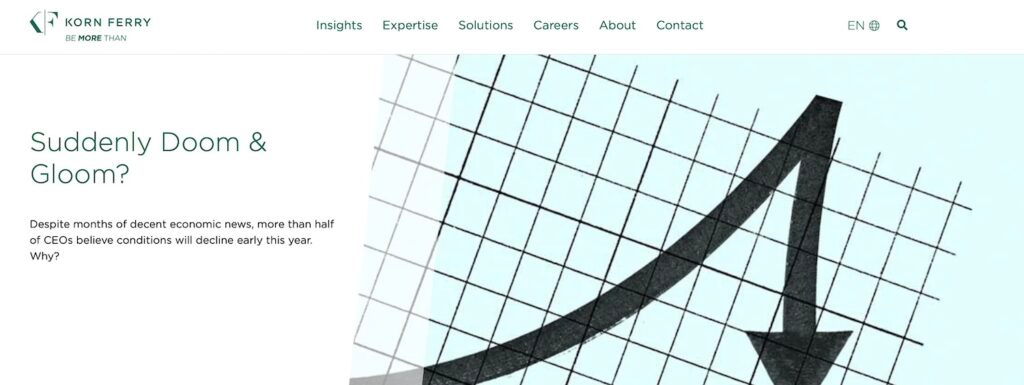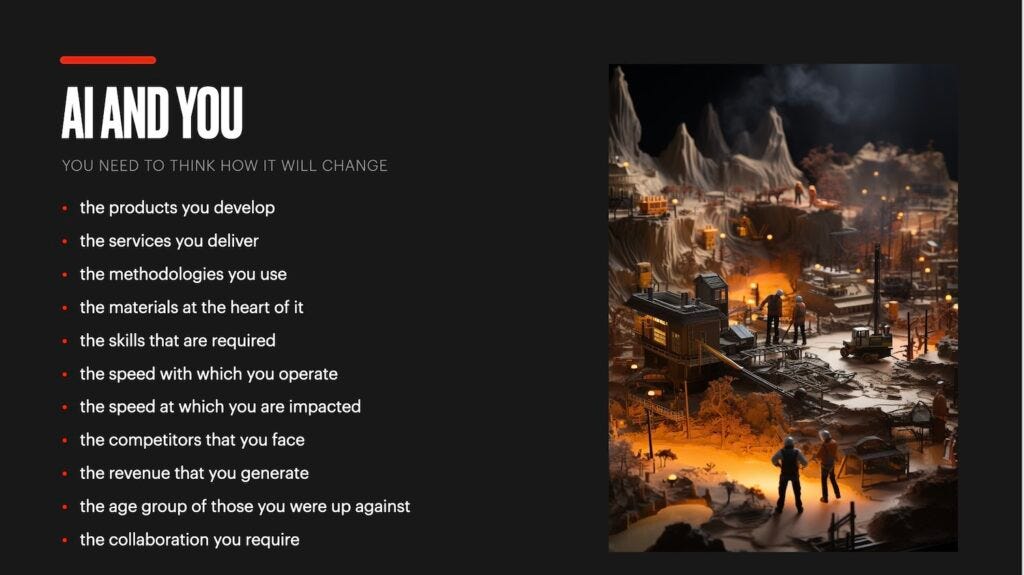Caught in a Trap (They Can't Get Out?)
"Real leaders don't try to cost cut their way into the future! (They reinvent!)"
Really?
Are we going to do this all over again?
My interest was drawn recently to a headline in a newsletter I got from Korn Ferry, with an outlook for 2024. This mindset exists in the context of the Great Recession of 2023 That Was Predicted But Never Happened.
In one survey, four in ten firms say they plan layoffs in the New Year; in another, 53% of CEOs say they expect economic conditions to worsen in the first half of 2024. This is in sharp contrast to the investors supporting them, 94% of whom expect things to improve in the near term (only 16% of leaders do).
Are these CEOs continually ingesting some sort of doomster-gloomster drug that the rest of the world doesn't know about? The article goes on:
But experts say many corporate leaders are fretting about their firms’ considerable expenditures over the last few years—and the dent those costs will have on future profitability. CEOs have been in a “reactive mode” for the last four years, says Doug Charles, Korn Ferry’s President of the Americas. Following the pandemic, many firms hired aggressively and made heavy capital investments to keep up with a consumer boom. Last year, after ChatGPT took off, many also rushed to spend heavily on AI and other technology-related infrastructure.
The question for many CEOs is whether their expenditures of the last four years are sustainable. Some believe they know the answer: They have already initiated hiring freezes, delayed expansion plans, and, in some cases, cut staff. Now, they wonder if even more severe steps are needed. “They’re on the cost side of the equation, trying to figure things out,” Charles says.
That explains the mindset - the global pandemic threw a kink into the works, and so there is a focus on trying to rightsize the organization. But then I contrast this mindset with what I came across in another CEO survey from Price Waterhouse. (This one is from last year; the most recent is due soon, and I will be interested to see what's changed.)
Nearly 40% of CEOs don't think their companies will be economically viable a decade from now if they continue on their current path.
Let me get this right, because I think Einstein had something to say about what's happening here. Digging deeper, let's look at why they think survival might be at stake.
Oh - it has to do with such things as the emergence of new competitors, business and industry model disruption, skills issues, and changing consumer behavior. You know, the sort of thing I am always talking and writing about. To think about it, this has become a core part of my stage presentation; just recently, I featured this slide prominently in the first part of a keynote for a CEO and his leadership team, putting into the impact of artificial intelligence on their industry,
Simply put, I said, AI will change absolutely everything about you, including:
the products you develop
the services you deliver
the methodologies you use
the materials at the heart of it
the skills that are required
the speed with which you operate
the speed at which you are impacted
the competitors that you face
the revenue that you generate
the age group of those you were up against
the collaboration you require
So on this 'economic doom and gloom' and 'business survival' mindset - simply put, these two mindsets can't co-exist. You are convinced that you've got to get into a cost-cutting and 'rightsizing mode,' and yet, believe that if you don't change some fundamental things about your business, you won't survive. The interesting thing is that when you look at the PWC survey, they know that everything is going to change - that's why I'm often booked by CEOs to come in and speak to their corporate teams about that change. They KNOW they need to reinvent their business to align with a different future - they KNOW they need to reinvent.
So what gives? As the song by Elvis goes, they are caught in a trap, and can't get out.
They need to escape this trap of divergent thinking - as do you. I read all this stuff with fascination, knowing that one of my core messages through the years has been the need for organizations to continuously reinvent themselves - in terms of the products or services they deliver, the skills they have in place, the structure they use to go forward, the collaboration they have embedded into their organization. IU often shares the story that for Apple, some 60% of their revenue comes from products that didn't exist 5 years ago, and challenges the audience - could your company do this same type of thing?
My key message? If you continue to let the economic doomster-gloomsterism drive your agenda, you are doing ti all wrong - because as I have pointed out many times, history has taught us that it is those who reinvent through investment - not those who cost-cut - are those who survive and thrive into the future.
That's what real leaders do.
Futurist Jim Carroll has written extensively on the fact that reinvention is the key to the future and that those who invest in tomorrow despite uncertainty, are those who win tomorrow.









